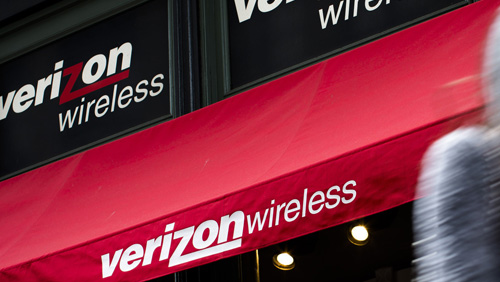American conglomerate Verizon Communications Inc. is not closing any doors when it comes to betting on the multibillion-dollar sports betting market.
 Citing people familiar with the matter, Bloomberg reported that Verizon is considering the possibility of investing in a sports-focused online gambling venture in case the U.S. Supreme Court decides to declare the federal sports betting ban unconstitutional.
Citing people familiar with the matter, Bloomberg reported that Verizon is considering the possibility of investing in a sports-focused online gambling venture in case the U.S. Supreme Court decides to declare the federal sports betting ban unconstitutional.
News insiders told the news outlet that the telecoms juggernaut held consultations with financial and gaming experts to weigh its sports betting options as it tries to transform itself into a more diversified media business.
Verizon is already one step closer to the gambling industry after it acquired web services provider Yahoo, including its fantasy sports unit, for $4.5 billion last year. Yahoo is a clear No. 3 in the DFS market, although it trails DraftKings and FanDuel by a large margin. It boasts some 1.3 billion users who spend an average of 30 billion minutes a year in its offerings.
Yahoo’s fantasy sports unit is now under Verizon’s media division called Oath.
Gaming experts believe that it would be a wise business decision for Verizon to gobble up other online sports betting companies if it wants to venture into the sector rather than build its gambling empire from scratch.
The company may also capitalize on its 100 million subscribers aside from Yahoo’s tens of millions of fans.
For now, the New York-based Verizon remains mum on its plans should the sports betting ban be lifted.
The push for legal sports betting in the United States received a boost during an early December hearing after a majority of the Supreme Court justices appeared to agree with New Jersey that PASPA violates the U.S. Constitution’s protection of state’s rights.
Eilers & Krejcik Gaming, which tracks the developments in the gambling industry, expects 11 states to enact betting bills if the high tribunal sides with New Jersey. Gambling analysts forecast the U.S. sports betting market could be worth between $2 billion and $5.8 billion annually within five years.